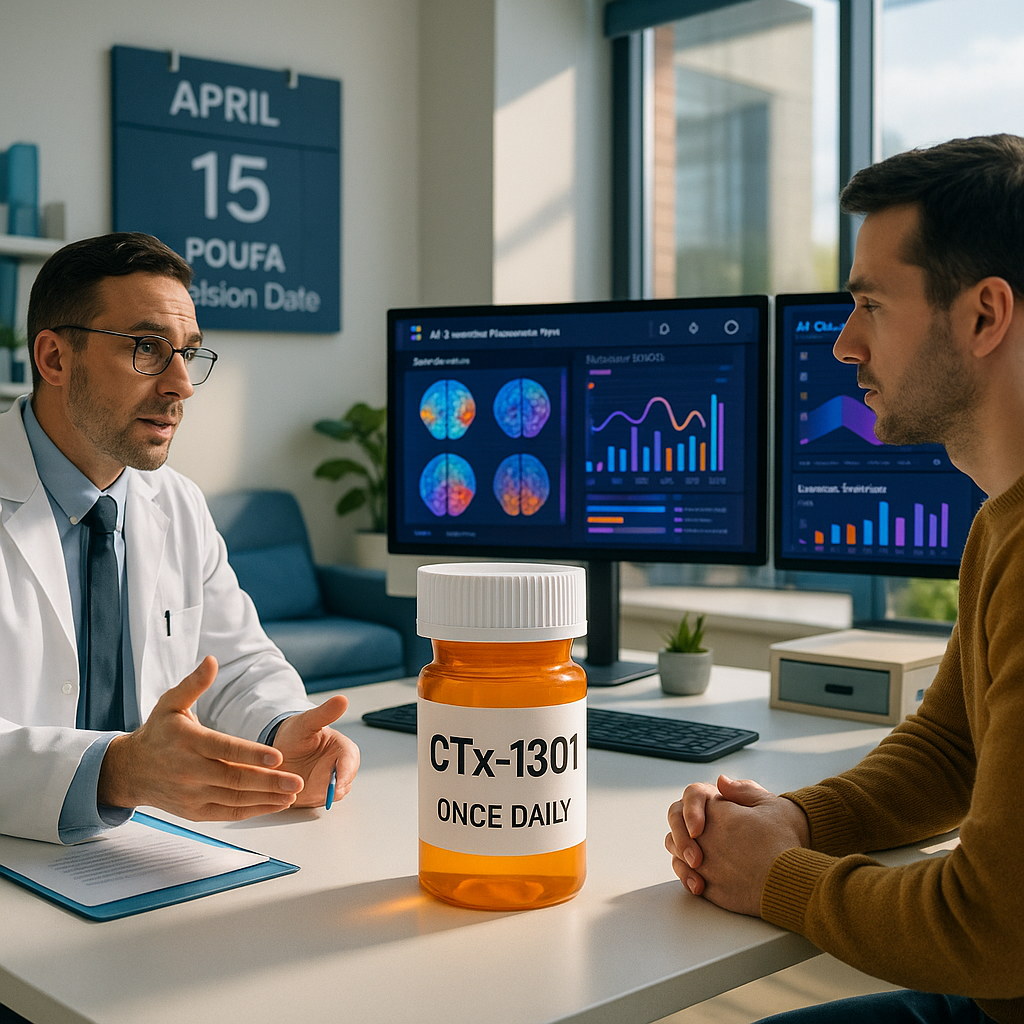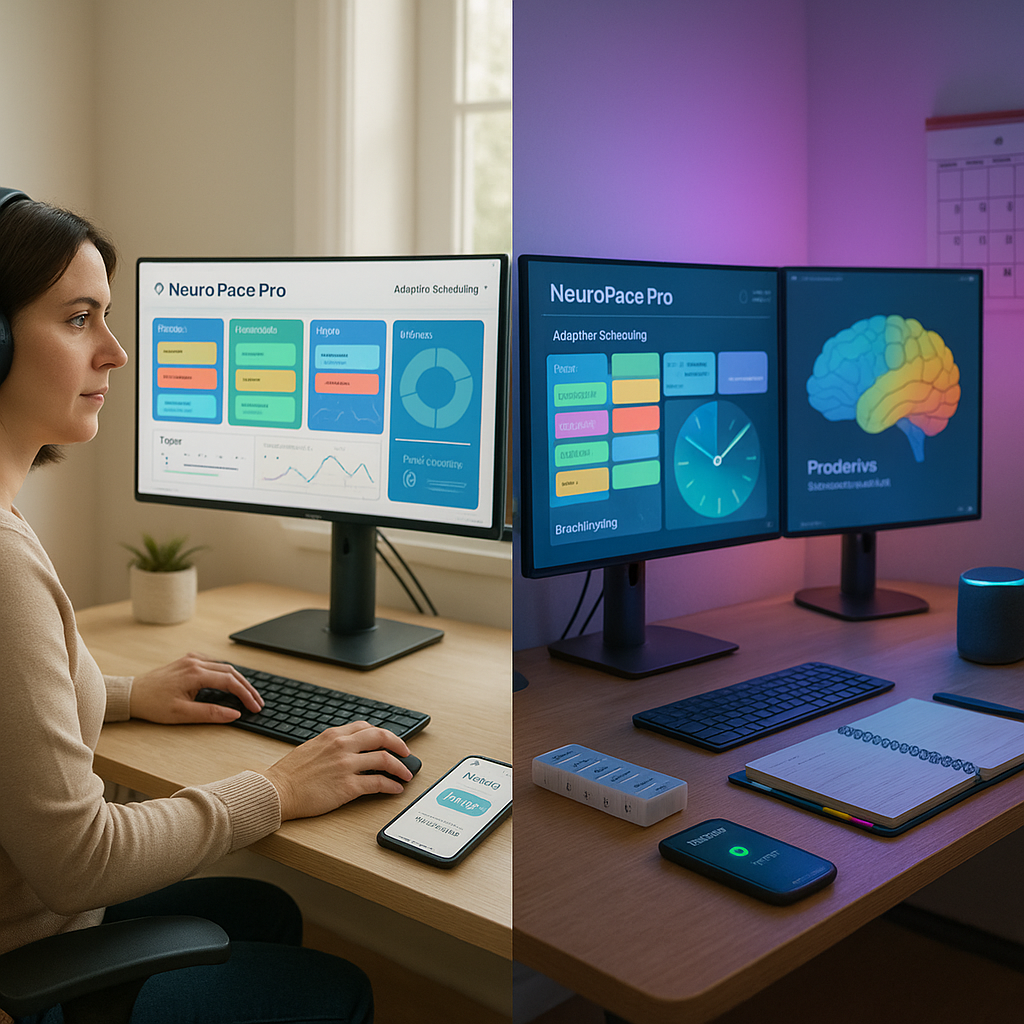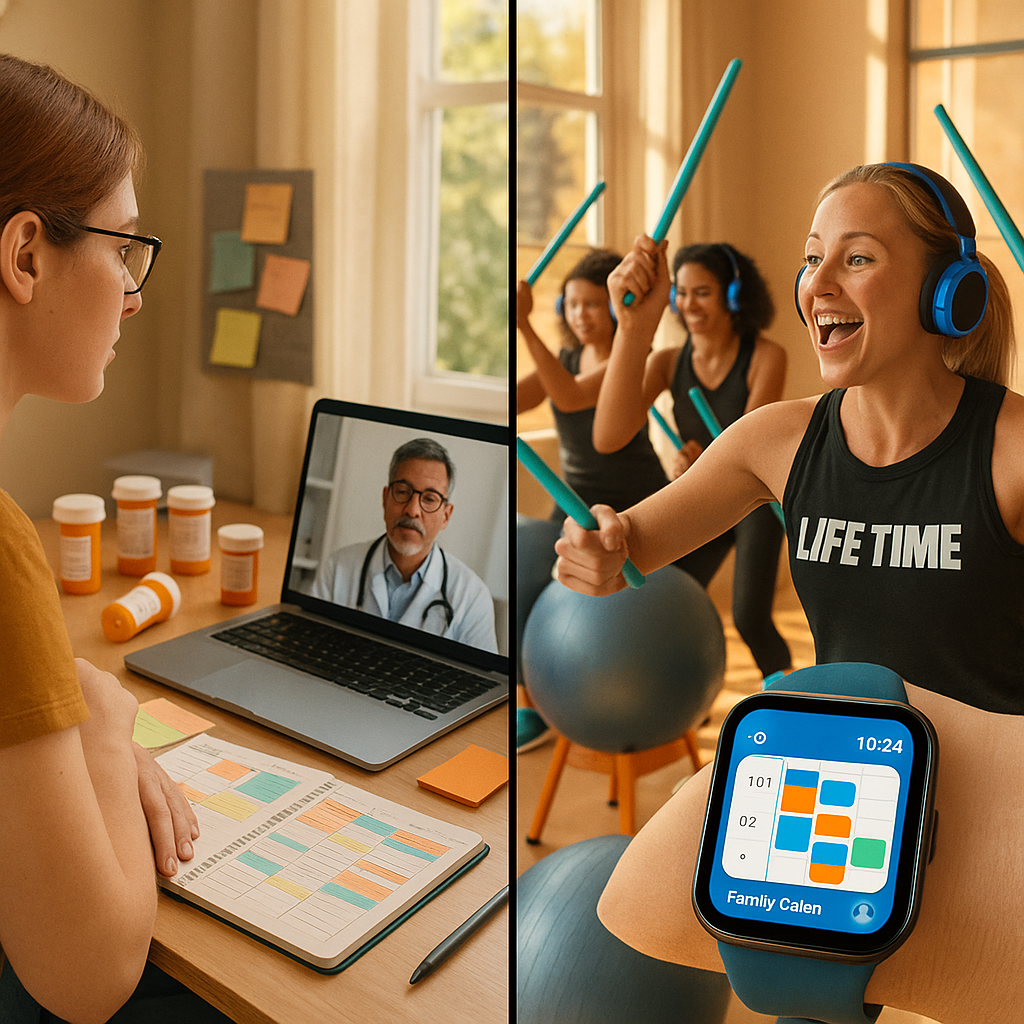Key Takeaways
- Top story: FDA accepts new once-daily ADHD medication CTx-1301, indicating expanded pharmaceutical options.
- AI tools are being developed to address executive function challenges common in ADHD.
- Universities are broadening neurodiversity coaching, moving beyond traditional accommodations.
- ADHD entrepreneurs are sharing workflow strategies for sustainable business growth.
- Trends in technology and coaching highlight new ways to turn ADHD-related obstacles into advantages.
Introduction
On 23 October 2025, the FDA’s acceptance of the new once-daily ADHD medication CTx-1301 represents a significant advance in ADHD news and developments. This milestone signals expanded treatment choices for neurodivergent professionals. Today’s roundup also examines how emerging AI productivity tools are addressing executive function challenges and reflects the evolving landscape of neurodiversity support and innovation.
Top Story. FDA Accepts CTx-1301 Review
Breakthrough Development
The U.S. Food and Drug Administration has officially accepted Cingulate Therapeutics’ New Drug Application for CTx-1301, a novel ADHD medication designed for once-daily dosing. The regulatory body established a Prescription Drug User Fee Act (PDUFA) target action date of 15 April 2026.
This treatment employs a proprietary drug delivery platform intended to provide precise medication release throughout the day. Clinical trials reported significant improvements in symptom control over existing treatments, with participants experiencing fewer side effects.
Cingulate CEO Shane J. Schaffer stated that the acceptance marks an important milestone in meeting unmet needs in ADHD treatment. He described CTx-1301 as a potential advancement in medication timing and effectiveness during an investor call on 22 October 2025.
Also Today. Tech and Productivity
AI Tools Show Promise for ADHD Management
Microsoft introduced an expanded suite of AI-powered productivity tools designed for neurodivergent professionals. New features include customizable workflow automation and context-aware task prioritization.
Early testing with ADHD professionals indicated a 40% improvement in task completion rates with these adaptive tools. Dr. Sarah Chen, Microsoft’s Head of Accessibility Innovation, noted that technology should align with natural thinking patterns to maximize its effectiveness.
Entrepreneurs Leverage ADHD Strengths
A recent study from Stanford Business School found that ADHD entrepreneurs are twice as likely to identify innovative market opportunities compared to non-ADHD peers. The research tracked 500 founders over three years and highlighted the role of hyperfocus and creative thinking in business success.
Also Today. Education and Workplace
Universities Expand ADHD Coaching Programs
Ten major U.S. universities have announced expanded ADHD coaching services for the 2026 academic year. The new programs will integrate traditional academic support with digital tools and peer mentoring networks.
Preliminary data from pilot programs shows a 35% increase in student retention rates among participants. Harvard’s Director of Student Support Services emphasized the importance of combining human guidance with technological solutions to better serve neurodivergent students.
Professional Support Models Evolve
Fortune 500 companies are increasingly adopting ADHD-friendly workplace policies, according to a new Deloitte report. Initiatives now include flexible scheduling, specialized productivity tools, and dedicated mentorship programs.
The report notes that organizations with neurodiversity programs have seen a 28% increase in team innovation metrics and enhanced employee satisfaction scores.
What to Watch
- FDA CTx-1301 Advisory Committee Meeting (15 January 2026)
- National ADHD Professional Conference registration opens (1 November 2025)
- Microsoft Neurodiversity Tools public release (5 December 2025)
- University coaching program enrollment begins (January 2026)
- PDUFA decision date for CTx-1301 (15 April 2026)
Conclusion
The FDA’s acceptance of CTx-1301 represents an important development in ADHD news and developments, underscoring increased focus on innovative and practical solutions. The expansion of AI tools and university coaching programs demonstrates a growing commitment to robust support for neurodivergent individuals in professional and academic environments. What to watch: the FDA Advisory Committee meeting for CTx-1301 on 15 January 2026, along with key technology and education rollout dates in late 2025 and early 2026.





Leave a Reply